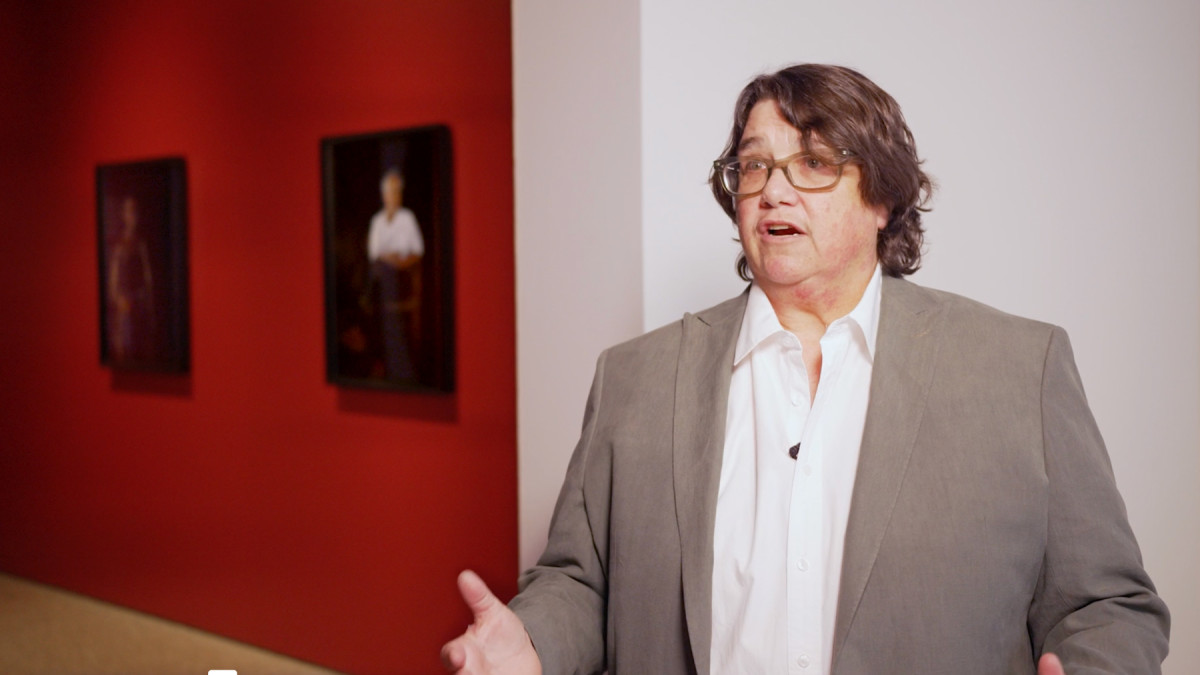Suburbia 1, Espinca bifida #3, Laconista7
2003 - Drawing & Print (Drawing & Print)
Dimensions vary
Johanna Calle
Calle’s drawings all inhabit received forms but alter them to call attention to specific qualities. A newspaper is both reproduced and modified to call attention to the newspaper as a means of information transmission. This also emphasizes the effect of various seemingly unimportant support mechanisms: the role of visual layout and images. In other drawings Calle explores systems: the unfurling of suburban streets, resembling text and the veins on a leaf. These congruences point to the unity of Calle’s thematic interests: the circulation of information, human energies, and lives.
Johanna Calle’s drawings use pre-existing systems to explore issues of built space, cultural identity, and language. Her work often departs from common lines of handwriting, altering them with energy and pattern. The practice of drawing is considered expansively in Calle’s work, as she inserts stitching, metal, and even, returning to her background as a painter, the covering capacity of paint.
Colors:
Other related works, blended automatically

© » KADIST
Johanna Calle
2011Johanna Calle’s Abece “K” (2011) is part of a series of drawings (compiled into an artist book called Abece ) based on the alphabet...

© » KADIST
Felipe Arturo
2012Primero estaba el mar ( First Was the Sea , 2012) is a system of equivalences between syllables and silhouettes of waveforms cast in cement...

© » KADIST
Felipe Arturo
2012Defined as entropy, the second law of thermodynamics proposes that energy is more easily dispersed than it is concentrated...

© » ROYAL ACADEMY
Catherine Opie
Video: Catherine Opie on photographing leading British artists | Blog | Royal Academy of Arts Catherine Opie in the RA Collection Gallery Video: Catherine Opie on photographing leading British artists Read more Become a Friend Video: Catherine Opie on photographing leading British artists Published 8 September 2023 Catherine Opie discusses her portraits of David Hockney, Anish Kapoor, Gillian Wearing, Isaac Julien and Lynette Yiadom-Boakye, featured in our free display in the Collection Gallery...

© » KADIST
Nicolás Paris
2012Nicolas Paris studied architecture and worked as an elementary school teacher before he decided to become an artist...

© » KADIST
Claudia Joskowicz
2015Some Dead Don’t Make a Sound (Hay muertos que no hacen ruido) is a single-channel video by Claudia Joskowicz that features the Mexican legend of the Weeping Woman (La Llorona) as its main protagonist...

© » KADIST
Runo Lagomarsino
2020Yo también soy humo (I am also smoke) is a 16mm film that has been digitized to video...

© » KADIST
Nicolás Consuegra
2012A residency program in the blazing hot city of Honda, Colombia, inspired artist Nicolás Consuegra to consider the difficulty in understanding the needs of a distant community...

© » KADIST
John Houck
2013John Houck’s multi-layered photographic compositions immortalize nostalgic objects from the artist’s childhood, manipulated in the studio and in post-production into unreal still-life arrangements...

© » KADIST
Claudia Joskowicz
2007The primary interest in the trilogy is Joskowicz’s use of cinematic space, with long tracking shots that portray resistance to habitual viewing experiences of film and television...

© » KADIST
Nicolás Consuegra
2014Consuegra’s Colombia is a mirror made in the shape of the artist’s home country—a silhouette that has an important resonance for the artist...

© » KADIST
Nicolás Consuegra
2008In his project Instituto de Vision (2008), Consuegra investigates how modernism gave rise to many new technological forms of vision, most notably the camera, yet also resulted in the disappearance of outmoded forms of vision...

© » KADIST
Ximena Garrido Lecca
2014Destilaciones ( Distillations , 2014) is an installation composed of a group of ceramic pots, presented on the floor and within a steel structure...

© » KADIST
Martine Syms
2016Her 2016 video installation quotes the sitcom-as-form and also draws from a 1907 comedic short, Laughing Gas...

© » KADIST
Catherine Opie
1987Catherine Opie’s candid photograph Cathy (bed Self-portrait) (1987) shows the artist atop a bed wearing a negligee and a dildo; the latter is attached to a whip that she holds in her teeth...

© » KADIST
Clarissa Tossin
2012In Fordlândia Fieldwork (2012), Tossin documents the remains of Henry Ford’s rubber enterprise Fordlândia, built in 1928 in the Brazilian Amazon to export cultivated rubber for the booming automobile industry...




